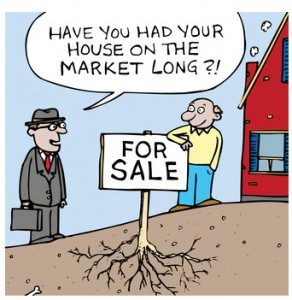Is Owning Your Home Worth The Hassle?
 A dream for many of us is to eventually own our homes so that we don’t have to worry about things like being kicked out by a landlord, or having to move because of renovations being done to the building. Also, once you have paid off your mortgage you no longer have to worry about paying towards the cost of the property unlike if you were renting. All you have to pay for is your utility bills and other essentials like food and clothing. However, with the rising cost of properties and the difficulty of obtaining one, is it worth owning a property? This article is going to explore why we think that even though it’s a hassle, it’s definitely worth it in the long run.
A dream for many of us is to eventually own our homes so that we don’t have to worry about things like being kicked out by a landlord, or having to move because of renovations being done to the building. Also, once you have paid off your mortgage you no longer have to worry about paying towards the cost of the property unlike if you were renting. All you have to pay for is your utility bills and other essentials like food and clothing. However, with the rising cost of properties and the difficulty of obtaining one, is it worth owning a property? This article is going to explore why we think that even though it’s a hassle, it’s definitely worth it in the long run.
Cost
It’s a little known fact that when you buy a property, not only do you have to find the money for a deposit (it’s usually 10% but it can be lower depending on your lender), but you also have to find the money for upfront fees. These are usually from your realtor and they are to compensate them for handling your property and your move. These charges aren’t something that many people think about until their realtor puts it in front of them.
While these charges might be more of a hinderance than anything else, it’s definitely worth digging into your pockets to pay for it because when it’s all said and done, you’re officially a homeowner and can begin looking forward to creating memories in your new home.
Location
If you’re looking to buy a home away from where you usually reside, it can be difficult to pick a location for you to settle down in. Competa properties offer people that are looking into becoming a homeowner the chance to own their own property for much cheaper than you would in the USA or UK. So if the prospect of living abroad excites you, it’s definitely worth checking out what they’ve got on offer.
If you’re planning to stay local, then a simple trip to a realtor will help you discover what kind of properties are on offer, and it will even help you plan how much you’re going to need to save to get the property of your dreams.
While choosing a location might be something that blows your mind a little, think about the fact that you’re in a position to live anywhere that you want, whereas people who rent don’t often have a wide choice.
Upkeep
Another thing that puts people off buying their own homes is the upkeep of the property. When something goes wrong, it’s up to you to make the repairs to your home. Unless of course, it’s on the pavement that you don’t own. If for example your boiler breaks, it’s up to you to either replace it yourself, or hire a professional to come and do the work for you. Obviously this can be costly, and if you’re salary is only making enough to pay your mortgage and other bills, this could be a problem.
One way of solving this is to arrange with your bank a saving scheme for when times like these arise. Most banks these days offer something to help you save money, whatever it’s for. Alternatively, you could put as much money as you can afford away each month so that if something does happen, you know that you’ve got some money to dip into for repairs.
Again, while this is something that puts people off, it can also be turned into a good thing. This is because when you do have repairs made, you can ensure that it’s done to the best quality so that you don’t have to pay for it again any time soon. Whereas if you were renting, you’d have to contribute to your landlord who might go cheap on the repairs and keep the extra money for themselves.
Conclusion
As you can see, there are many downsides to owning a property but in the long run there are always solutions around it. For example, if you ensure that you have home insurance, some repairs you might be able to claim from that, especially if it’s caused by a natural disaster or robbery. While it might be difficult to begin with, wouldn’t you rather have your home to own when it comes to later on in life too?
















